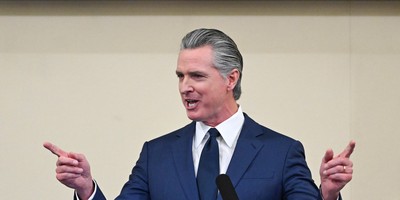The Oklahoma Health Care Authority (OHCA) recently announced a 25 percent provider rate cut to SoonerCare, Oklahoma’s Medicaid program, due to anticipated cuts in response to the state’s $1.3 billion budget shortfall. Shortly thereafter, the OHCA proposed the “Medicaid Rebalancing Act of 2020” as a way to purportedly avoid the potential rate reductions. Under this plan, state lawmakers would pursue a Section 1332 waiver to access federal funds though the Affordable Care Act (ACA), also known as Obamacare.
OHCA’s “rebalancing” plan is a clear attempt to expand Medicaid eligibility and to access federal dollars under Obamacare, while avoiding two politically toxic words in Oklahoma: Medicaid Expansion. Unfortunately, this plan still expands Obamacare in Oklahoma, entangling our state to unsustainable federal funding and increasing the burden on future state budgets.
In the same fashion as big-government policies in Washington, OHCA’s plan punts tough decisions to future generations. For example, the plan proposes removing Medicaid eligibility of 175,000 pregnant women and children who are currently eligible for benefits today and move them to subsidized commercial accounts on the Obamacare exchange, where they would face increased costs and a system that has been described as a complete failure by both providers and insurers. The OHCA uses the alleged savings from this change, as a key component of the funding mechanism for the “rebalancing” plan.
Under federal law, however, Oklahoma could not carry out the plan’s removal of pregnant women and children from Medicaid eligibility until 2019. Thus, the difficult decision, to either remove vulnerable women and children from Medicaid or risk a state budget disaster, would be inherited by legislators who are either not members of the Legislature yet or are not yet in leadership positions. Plus, one of the key funding funding mechanisms for expansion proposed in the plan is a cigarette tax hike, which is an unreliable source that is unlikely to generate the revenue that proponents predict. This is a short-term “fix” that leaves enormous consequences for future Oklahomans and hurts those who are most vulnerable in this system.
Recommended
In addition, this plan would expand government dependency in Oklahoma to historic levels. The Rebalancing Act would essentially create a new entitlement in our state, expanding Medicaid eligibility to hundreds of thousands of able-bodied adults, regardless of work-status. The OHCA claims only 175,000 of these individuals would apply for the program, but the number of individuals that would become eligible for the program is likely far greater than that. This eligibility expansion would completely alter Medicaid in Oklahoma to a program that is unrecognizable when compared to its original purpose – a safety-net for those who need it most.
Oklahoma policymakers have a choice to make: either leave a legacy of dependency or an endowment of empowerment for future generations. Oklahomans don’t prolong tough decisions or try to excuse themselves from responsibility. Our state officials shouldn’t either. Despite the current financial strain on state government, we can find solutions that do not leave devastating generational repercussions.

























Join the conversation as a VIP Member